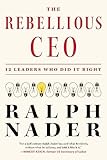It’s useless to react to the news of the day; instead we should understand each report as a maneuver in a hostile field of strategies to be decoded, operations designed to provoke a specific reaction.
— The Invisible Committee, The Coming Insurrection
The phone hacking scandal at the British newspaper The News of the World has thrown a spotlight onto a murky culture of collusion and corruption among British politicians, the press and the police, whose existence is unlikely to surprise anybody with a rudimentary understanding of those institutions. Nor, sadly, is it surprising that hundreds of News of the World workers will now lose their jobs for the crimes and mistakes of News International managers. News International clearly regards its workers, along with the victims of its hacking, as fair game. Indeed, while the News of the World scandal clearly represents an enormous set-back for Rupert Murdoch, it at least presents the Sun King, as he is known, with an opportunity to rationalise his newspaper business as the profitability of tabloid newspapers declines.
In an article in Britain’s right-wing magazine The Spectator, entitled ‘What the papers won’t say’, journalist Peter Oborne castigates politicians and the media for failing to link the scandal to Murdoch’s ambition to take overall control of BSkyB. Oborne asks what he sees as a neglected question: ‘whether the owner of News International is any longer a “fit and proper” person to occupy such a dominant position in the British media’. Yet the question of Murdoch’s moral fitness for mega-moguldom certainly is being raised, especially in those parts of the mainstream media not owned by him (such as The Spectator), and Murdoch has now been forced to drop his bid for BSkyB ownership, at least for now.
If Oborne really wants to ski off-piste, here are a few questions that actually have been ignored by the mainstream media. Which of Murdoch’s many enemies ‘pressed the button’ on phone hacking? And why now? For obvious reasons, definitive answers to these questions are hard to come by, but there can be no doubt that there are elements within the British state that are hostile to Murdoch’s pro-US agenda and for whom Murdoch’s potential domination of the British media was not a welcome prospect.
And here’s another largely neglected question: since ‘respected’ media organisations such as Britain’s BBC systematically mislead the public (to take only the most egregious current example, the BBC is blacking out news of the popular movements in Spain and Greece), why do we reserve our moral outrage only for the Murdoch press? It is worth remembering, after all, that in terms of their fundamental ideological commitments, public service broadcasters such as the BBC and Murdoch are on the same side. Indeed, left-liberal complaints about the ‘corporate’ media and ‘neoliberalism’ all too often underestimate the profound ideological manipulations of the liberal press and the public service broadcasters.
It looks like curtains for Britain’s toothless press regulator the Press Complaints Commission and tighter press regulation is on its way. But there is every probability that this scandal will ultimately only reinforce the power of the British state and its propaganda system. In a process that recalls the ruling class’s recuperation of the British MPs’ expenses scandal in 2009, the public outrage over the News of the World’s malpractice is being exploited for moral capital by the liberal political and media establishments, as they congratulate themselves for fishing a few rotten apples from the barrel. Even if we see this scandal as a genuine, spontaneous, ‘crisis’ and not as a well-planned take-down, it is a crisis that is already being used by the ruling class as an opportunity to reassure the public of the fundamental soundness of the British political and media systems.
In their reactions to the News of the World scandal, most liberal academics, too, have tended to frame the phone hacking scandal as an aberration, stressing the need for a robustly ethical journalism that fulfils its proper mandate to question power and promote democratic deliberation. Yet this argument rests on the assumptions that liberal democracy (or even, in that corny nationalist inflection, ‘our democracy’) is a Good Thing – and that the primary role of journalists is to promote it.
These commonplace assumptions about democracy and the role of journalism may give comfort to those who are understandably sickened by recent revelations. From a more radical perspective, however, they can be seen as discursive ‘strategies of containment’ (in Fredric Jameson’s phrase) that serve to arrest critical reflection on the contradictions of capitalism and the macro-ideological operations of the news media. They beg large questions: in a society in which the politicians and media tirelessly work to oppress the working class, can we talk about democracy at all? And is the ultimate function of mainstream political journalism really to serve democracy – or, as Noam Chomsky would say, to deter it?










